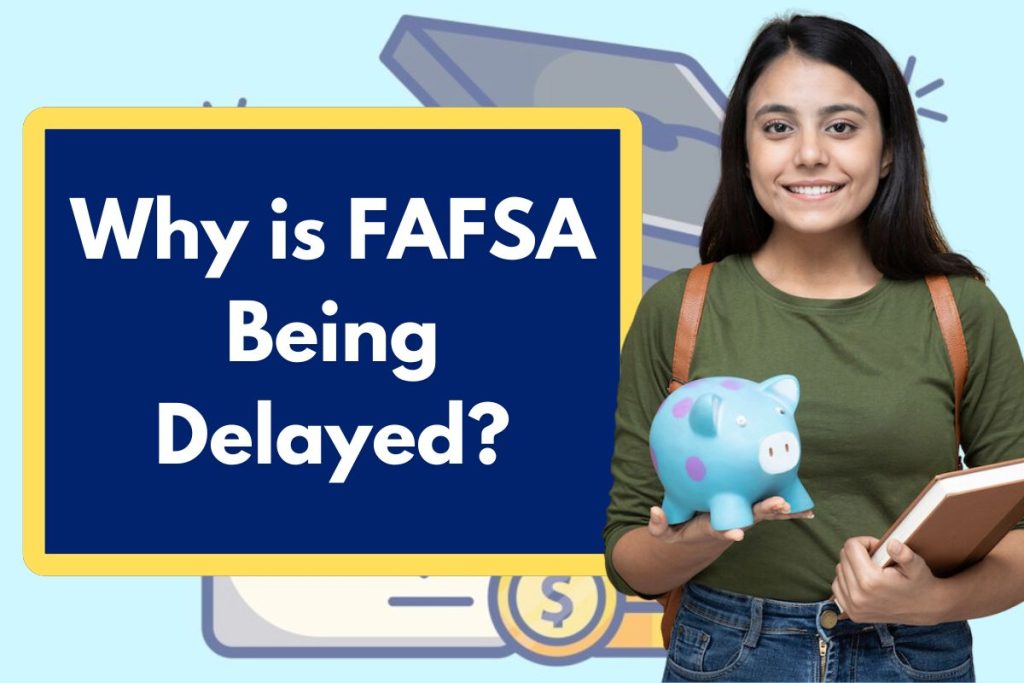The 2025–2026 school year FAFSA rollout has been postponed once more, from its customary October 1 release date to December 1, 2024. The U.S. Department of Education announced this postponement in an effort to avoid the technical problems that beset the FAFSA last year. Many families and students experienced exasperating delays in 2024, which eventually slowed down the processing of financial aid and affected thousands of families’ college choices.
This year, the application will be released in phases because the Department does not want another disruptive deployment. So a select few students and organizations will be able to access it in October; everyone else will have to wait until December. Finding and fixing bugs before the public has access is the goal of this phased approach.
Why is the FAFSA being delayed?
The United States Department of Education has revealed a new setback following a delayed initial rollout in the autumn of 2023. Students’ FAFSA information will not be sent to schools and scholarship agencies until the first half of March, as opposed to late January as was originally scheduled. For schools and kids like you, this delay which is anticipated to last four to six weeks presents a difficulty and without this detail organizations are unable to know how much financial help a student is eligible for. Additionally, you and your family cannot be certain that you will be able to pay for and enroll in the universities on your list.
However, take a deep breath if this circumstance is stressing you out, you are not by yourself. Colleges and universities use the information from the FAFSA, which is filled out by over 17 million students annually, to assist distribute financial aid and ensure sufficient enrolment. In order to address the issue, a few powerful individuals and groups are working behind the scenes. In fact, Miguel Cardona, the U.S. Secretary of Education, took action on February 5th to guarantee improved student experiences moving ahead. He did this by implementing programs that include federal staff and funding to assist universities in processing and preparing financial aid applications. It will therefore improve.
What can you do about it?
You should get in touch with colleges, research alternative financing sources, and make a contingency plan in case the FAFSA delay affects you. Federal student funding is an important consideration for many families, especially when it comes to college decisions for incoming freshmen. To ensure a seamless process, there are a few things you can do as you wait to learn what aid your student will be eligible for.
For many students, completing the FAFSA is a big thing as it establishes their eligibility for federal student loans, work-study, grants, and scholarships. Since many prizes are given out on a first-come, first-served basis, it has long been advised that students apply as early as possible to optimize their financial aid prospects. However, most families would have to wait longer due to the December release, which might make early admittance schedules more difficult. The December date should give plenty of time to apply, experts say, as most colleges have financial assistance deadlines in early spring.

How to get help completing the FAFSA
- Speak with your high school or CBO counsellor about available resources and student-helpful community FAFSA completion sessions.
- At one of the universities you are thinking about, check in with the financial aid office; they are also willing to assist.
- Check the Department of Education’s updated FAFSA resources to see if you can find solutions to any particular questions.
You can use those support alternatives to release funds for your college education, so don’t be afraid to ask for assistance.
Notify your prospective organization
If your child is intending to attend any schools, make sure they know you are awaiting their response about the FAFSA. Offering payment plans or institutional aid are just two examples of the strategies that each school may use to deal with the uncertainties around financial aid. If your student’s enrolment depends on their financial help, make sure to inform the school.
Think of other funding sources
Before it’s time to accept enrolment offers, you might not get the complete federal financial aid picture, even though some colleges/schools might decide to postpone their internal deadlines. When available, federal student aid is frequently the best option, but you might also want to look into other options for financing your education, like private loans or the many merit awards that are determined by a student’s interests and personal traits.
These choices could determine whether you can afford your education expenses or not, but they won’t include accessible payment plans or forgiveness alternatives for public borrowers. You could find that a financial advisor can assist you in taking this path.
| Official Website | Click Here |
| Our Homepage | BSEBMatric.org |